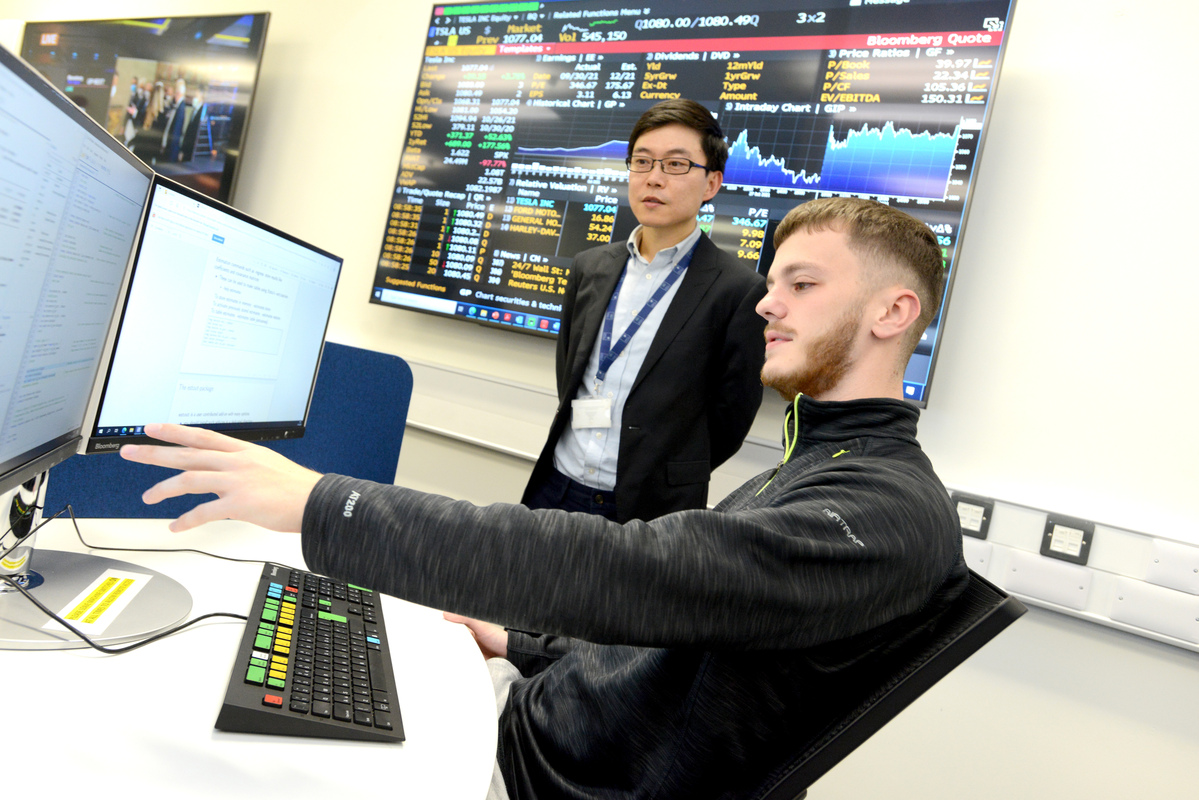Module Overview
This module aims to illustrate the further techniques of empirical investigation in economics by using real-world empirical applications in the fields related to economics and finance. The topics covered will reflect the development of contemporary applied econometrics. It can also advance students’ analytical skills of using econometrics software and packages that are essential for students who wish to pursue a professional career in economics, finance or related disciplines.
Module Overview
In the spirit of student as producer, the aim of this module is to inculcate the student in the enquiry process with the production of a short piece of original research being the outcome. Students will be applying a certain range of methods and tools that they might be expected to undertake as practitioners. To add a further real-world dimension, this is to be undertaken collaboratively.
Module Overview
This module presents important concepts and insights from Behavioural Economics. It considers applications from various areas, eg, Microeconomics, Macroeconomics, Experimental Economics, Economic Policy and Finance. The module will cover different ways to depart from the assumption of economic agents as homo oeconomicus, ie, agents with standard preferences, rational behaviour and rational expectations. These departures from homo oeconomicus include cognitive biases, simple rules and heuristics, and non-standard preferences. Next, the consequences of relaxing rationality assumptions are discussed on a wide range of applications. The module will also discuss empirical and experimental support for different behavioural models.
Module Overview
The dissertation provides the opportunity to demonstrate the ability to reflect critically on the aspects relating to their Master's programme. The vehicle will be the researching and writing of a dissertation, based on the methods delivered in the pre-requisite QM modules. The dissertation is the capstone of the Master's learning process and allows the student to demonstrate mastery in scholarship of a programme related topic that they have selected in amalgamation with supervisory tutors.
Module Overview
This module builds upon the principles and methods of statistics and introduces classical econometric modelling by using cross-sectional and panel data. It also aims to equip students with analytical skills of using econometrics software and packages that are essential for students who wish to pursue a professional career in economics, finance or related disciplines. Real-world data will be used in this module to facilitate learning and to develop problem-solving skills.
Module Overview
This module equips students with an in-depth and applied-oriented understanding of theoretical and empirical problems addressed in the field known as International Finance (also known as International Macroeconomics / Open Macroeconomics) and to bring students up to the research frontier in International Finance. It draws heavily on financial modelling and financial econometrics.
Module Overview
Since the World Trade Organisation commenced in 1995, the pattern of trade has changed significantly by cutting trade barriers particularly in developing countries. However, removing trade barriers and opening up markets do not necessarily generate sustainable development in practice. Rich countries and large multinational corporations dominate the global marketplace and in turn, trade is inherently unequal and poor countries seldom experience rising well-being but increasing unemployment, poverty, and income inequality.
Module Overview
The module covers the fundamental models in the economic growth and key macroeconomic issues in the field of modern macroeconomics. The emphasis will be on learning theoretical concepts and analytical techniques, as an aide to understanding contemporary macroeconomic problems. The deterministic growth models will be used to shed light on the often mysterious process of economic growth at both world and country levels, as well as on income and growth differences across countries.
Module Overview
This module presents the techniques necessary to analyse microeconomic problems on an advanced level. During this module students will study how and under what conditions markets and market-clearing prices achieve an efficient allocation of resources, the distributional properties of the market equilibrium and the role of the government, and problems of asymmetric information. The module provides the foundation for advanced modules in International Trade, Industrial Organisation, Behavioural Economics as well as for the micro-foundations of macroeconomic models.







